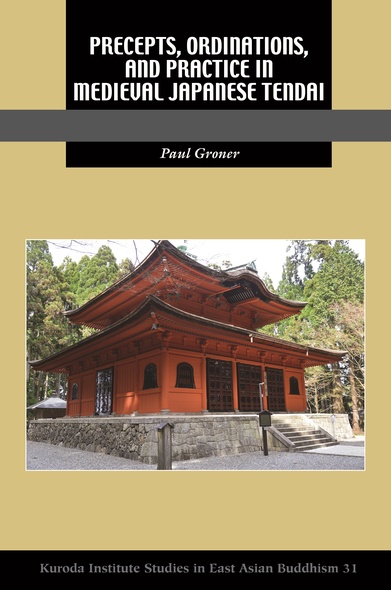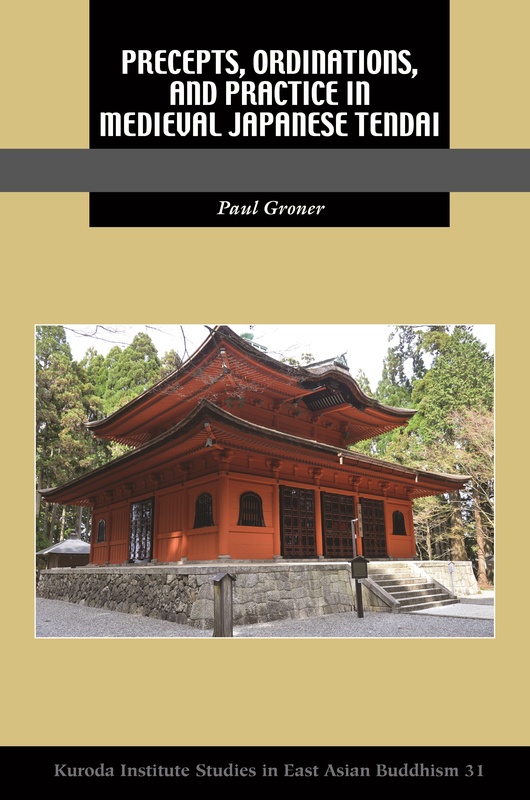
Precepts, Ordinations, and Practice in Medieval Japanese Tendai
Modern Japanese Buddhist monks of all denominations differ from those in other Asian countries because they frequently marry, drink alcohol, and eat meat. This has caused Buddhist scholars and practitioners generally to assume that early Japanese monastics had little interest in precepts and ordinations. Some medieval Japanese exegetes, however, were obsessively concerned with these topics as they strove to understand what it meant to be a Buddhist. This landmark collection of essays by Paul Groner, one of the leading authorities on Tendai Buddhism, examines the medieval Tendai School, which dominated Japanese Buddhism at that time, to uncover the differences in understanding and interpreting monastic precepts and ordinations. Rather than provide an unbroken narrative account—made virtually impossible due to the number of undated apocryphal texts and those lost in the numerous fires and warfare that beset Tendai temples as well as the difficulties of tracing how texts were used—Groner employs a multifaceted approach, focusing on individual monks, texts, ceremonies, exegetical problems, and institutional issues.
Early chapters look at a major source of Tendai precepts, the apocryphal Brahma’s Net Sutra; the Tendai scholar Annen’s (b. 841) interpretations of the universal bodhisattva precept ordination and the historical background of his commentary on the subject; Tendai perfect-sudden precepts and the Vinaya; and the role of confession in the bodhisattva ordination. Groner goes on to discuss the Lotus Sutra, another key text for Tendai precepts, and the monk Kōen (1262–1317) and his role in developing the consecrated ordination, which is still performed today. Later essays introduce Jitsudō Ninkū’s (1307–1388) system of training by doctrinal debate and his commentary on ordinations; doctrinal discussions of killing; and Tendai discussions among several lineages on whether the precepts can be lost or violated. Many of the issues discussed in the volume—particularly how to distinguish various types of Buddhist practitioners and how to conduct ordinations—continue to preoccupy Tendai monks centuries later. The book concludes with an examination of the effects of early Tendai precepts on modern practice.
Paul Groner is professor emeritus of religious studies at the University of Virginia.




